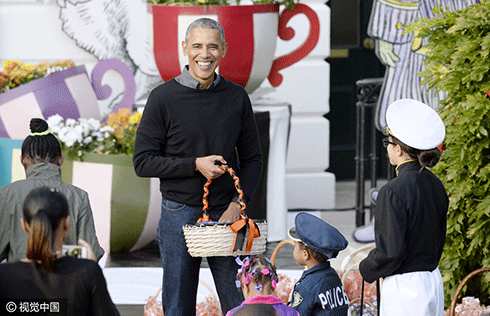Coldest winter since 2012 on way
Updated: 2016-11-01 06:49
By ZHENG JINRAN(China Daily)
|
||||||||
Get ready for the coldest winter since 2012.
Most of China-but especially the northeast and northwest-is expected to feel a big chill this winter, thanks to a climate pattern in the Pacific Ocean called La Nina, meteorologists said on Monday.
"Affected by a growing La Nina, the country's average temperature this winter is forecast to be 0.5 degree (Celsius) lower than average," said Zheng Fei, a researcher at the Institute of Atmospheric Physics of Chinese Academy of Sciences.
While that may not sound like much, it means China will be in for some very chilly days.
"The northeastern and northwestern regions will be hit harder, with the temperature dropping much more," he said.
La Nina is a periodic cooling of the surface of the equatorial Pacific Ocean, which causes abnormal weather patterns.
In August, the temperature of the central Pacific was cooler than average by 0.53 C, marking the start of La Nina, said the National Climate Center of China Meteorological Administration.
"Based on the records, it means the winter has larger possibilities to be colder," said Ding Yihui, academician of the Chinese Academy of Engineering.
In January 2008, a strong La Nina hit, bringing blizzard and snowstorm to 21 provinces, and caused 107 deaths.
But the La Nina this year is not expected to be as strong as the one in 2008, Zheng said, though it will add more uncertainty to forecasts. "The precipitation in winter is hard to forecast now," Zheng said.
Another factor is expected to contribute to the cold, and Beijing residents felt its chilly calling card on Monday.
Researchers said a stronger-than-normal air mass from the Arctic on Monday was to blame, and it won't be the last time it occurs this season.
"The current low temperature that residents in Beijing experienced is abnormal, much colder than the average level, which is closely related to the air mass from the Arctic," said Ding, the academician.
"The air mass from Arctic has grown stronger in recent years, bringing a larger influence to the winter in China," Ding said.
Zheng said the temperature would be even lower in January and February due to the larger influence from the air mass.
- Regular China-South Asia freight train launched
- Police swoop on Paris migrant camp after Calais Jungle clearout
- Regular China-South Asia freight train launched
- South Korean prosecutors arrest woman at centre of political crisis: media
- EU, Canada sign landmark deals to enhance economic, political partnership
- Wife raises funds to search for missing sailor

 Robots draw people to China International Industry Fair
Robots draw people to China International Industry Fair
 German international Miroslav Klose retires
German international Miroslav Klose retires
 Top 10 most influential Japanese cartoons in China
Top 10 most influential Japanese cartoons in China
 Opera performer who takes her shows to villages
Opera performer who takes her shows to villages
 13 most appealing cars in China in 2016
13 most appealing cars in China in 2016
 Obamas host White House Halloween for children
Obamas host White House Halloween for children
 China Fashion Week: Liu Yong Exclusive
China Fashion Week: Liu Yong Exclusive
 Top 5 collaborating countries in Belt and Road Initiatives
Top 5 collaborating countries in Belt and Road Initiatives
Most Viewed
Editor's Picks

|

|

|

|

|

|
Today's Top News
US election rhetoric unlikely to foreshadow future US-China relations
'Zero Hunger Run' held in Rome
Trump outlines anti-terror plan, proposing extreme vetting for immigrants
Phelps puts spotlight on cupping
US launches airstrikes against IS targets in Libya's Sirte
Ministry slams US-Korean THAAD deployment
Two police officers shot at protest in Dallas
Abe's blame game reveals his policies failing to get results
US Weekly

|

|







